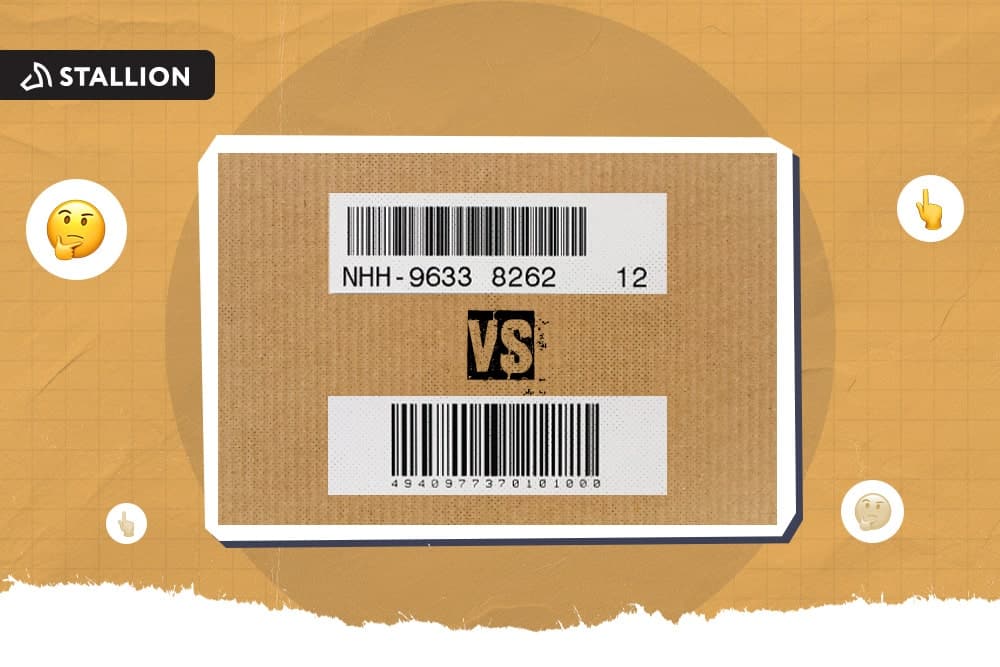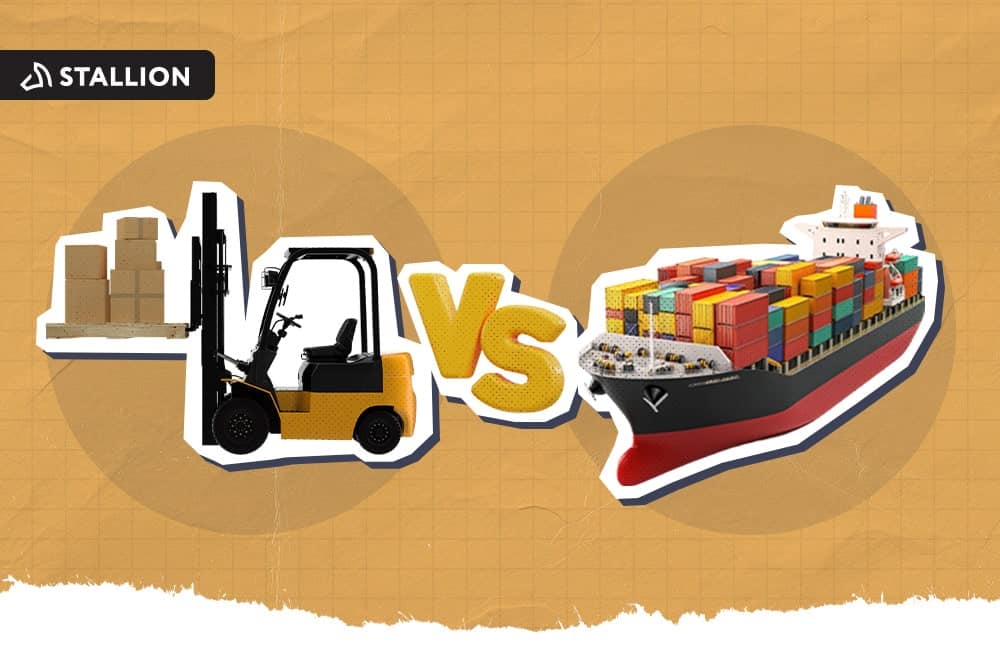
Shipping worldwide is an exciting venture. Who doesn't dream of having people around the globe use their products? Technology makes it possible for established and start-up companies alike to reach a global audience. With all the shipping methods and couriers available today, there are no limits to getting products across borders.
Unfortunately, the process is not always rainbows and sunshine. Among the many inconveniences that international shipping entails, a delayed package is probably the worst that could happen. Of course, minor setbacks should not stop you from trying. To ensure that you safely get your products across the world, this article will share some of the things that all trustworthy international shipping sites have in common.
While it's relatively safe and convenient to ship within Canada’s borders, there is a vast market outside of the country willing to give your products a try. It may require adjustments in almost all aspects of the business (financial, mostly), but the following statistics from Shopify prove the merits of shipping globally:
Beginners in international shipping may wonder, “Does USPS ship internationally?” or “Can Amazon ship internationally?” The answer is yes; both companies cater to global clients.
If you want to reach international audiences, you can choose to ship your products through land, sea, or airfreight. Although these three options are available to you, note that specific types of packages work best for a particular type of freight. Familiarizing yourself with each of their advantages and disadvantages will help you make an informed business decision and choose the most efficient option for your business.
Transporting products through trucks or trains, land freight is the best option for shipments crossing borders or countries on the same continent. With trips available to dispatch packages 24/7, land freight is one of the fastest and most cost-efficient shipping modes.
While it is not the fastest shipping method, sea freight is the best option for bulk shipments. Container vessels can fit shipments of almost any weight or size. When opting for sea freight, it is best to expect at least a month before it reaches its destination.
Airfreight is the most widely used international shipping method because it can ship parcels to any part of the world in record time. Airfreight offers both economy international shipping and international priority shipping, which can save you both time and money. Regardless of its benefits, airfreight imposes the strictest limitations on the size and weight of packages.
Now that you know why you should ship your products globally and how to do it, you should learn how to make the process as smooth as possible. Although everything—good and bad—can happen in shipping, it pays to choose a trusted courier to ease your mind.
To know if you can put your trust in the available international shipping sites, you must look for the following:
Opening your business to the global market means you should expect more volume in sales. With the amount of paperwork and processes that it takes to ship internationally, sticking to manual order fulfillment may cause additional work and unnecessary stress.
An efficient courier has functional automated shipping software that streamlines the order fulfillment process. The software automatically takes note of inventory, generates shipping forms, verifies shipping details and computes shipping and other mandatory fees. Automated shipping software guarantees fast and accurate fulfillment services, which is a big help for entrepreneurs running their businesses alone.
Every parcel you send out is valuable, and it's not just because of its monetary worth. It also carries your shop's reputation and the trust of your customer. The right courier knows this by heart and does what it takes to keep the packages safe. Paying for insurance may entail an extra cost, but it also ensures that you'll get the product's worth in case of damage or loss due to external causes.
Although it might sound obvious, the ability to track international orders is essential to both the sender and the receiver. It provides transparency in the shipping process and is therefore key in maintaining the customer's trust in the seller.
International shipping tracking enables both parties to build a schedule around the package’s ETA and anticipate delays. Because monitoring is often in real time, it prevents parcel loss and allows you to quickly locate where the package is temporarily stored or shipped to.
Shipping internationally entails dealing with customs clearance and documentation. The process and fees can get quite complicated because customs laws vary per country.
When shipping orders, the seller and the buyer must agree on the delivery payment option they will use: DDP, in which the taxes and fees are already included in the bill and paid for by the sender, or delivered duty unpaid (DDU), in which the buyer should settle customs clearance themselves.
DDU may seem like a good option because it's “cheaper.” However, most buyers are not familiar with customs laws, so it might just give them unnecessary confusion and additional fees that they did not account for. Opting for DDU can result in a traumatic experience for the buyer, and they may associate this with your brand.
DDP will definitely cost more upon checkout, but it will save your buyer from the hassle of having to deal with customs duty themselves, which can potentially delay the clearance of their package.
ETD is a paperless system that allows you to send shipping and customs documents in advance for compliance checks even before the package arrives in the destination country. This process streamlines the customs process and buys you time to supply lacking information immediately.
Not all couriers offer this service, and not all countries accept electronic documents. To be sure, it would be wise to ask your courier provider about it, or you can personally check the list of countries that accept ETD.
International shipping is notorious for additional fees. Some of these fees are compulsory (like fuel surcharge and delivery area surcharge), while some are added for each extra service (address correction, delivery reattempt, weekend delivery surcharge and oversized package charge, to name a few).
Although some of these surcharges are unavoidable, it helps if the courier is transparent about the fees you should expect to avoid unwanted surprises. This way, you can break down the costs to your customer and negotiate who should be paying for them. If you do not communicate these properly, the customer may be on the receiving end of these additional fees. You risk losing these clients should they express their disappointment in their review.
International shipping is a huge business decision and will require you to revisit your business financials, operations and strategies. If you plan to undertake this new venture, Stallion Express can help you learn how the international shipping industry works and fit your business right in. Contact Stallion Express today for a free consultation.



Can our fellow Torontonians relate?
-
#smallbusiness #business #entrepreneur #socialmedia #shipping #ecommerce #canadianecommerce #shopify #poshmark #b2b #saas #etsy #ebay #canada #canadiansmallbusiness #shoplocalcanada #entrepreneur
#toronto

Here’s your quick hassle free shipping from 🇨🇦 to 🇺🇸 as a business owner!
-
Any questions?! Leave them 👇🏻 and save this video so you don’t forget!
-
#smallbusiness #business #entrepreneur #socialmedia #shipping #ecommerce #canadianecommerce #shopify #poshmark #b2b #saas #etsy #ebay #canada #canadiansmallbusiness #shoplocalcanada #entrepreneur

Meet @drinkbenny a 🇨🇦 female founded energy drink brand! Instead of focusing on their products, they’re taking a unique approach by hosting in person events in different Canadian cities to offer an experience for their community 🧡
-
What are your thoughts on in person events? 💭
-
#smallbusiness #business #entrepreneur #socialmedia #shipping #ecommerce #canadianecommerce #shopify #poshmark #b2b #saas #etsy #ebay #canada #canadiansmallbusiness #shoplocalcanada #entrepreneur

Do you know the difference between DDU and DDP when shipping internationally 🌏 ?
-
Questions? Leave them below! 👇🏻
-
#smallbusiness #business #entrepreneur #socialmedia #shipping #ecommerce #canadianecommerce #shopify #poshmark #b2b #saas #etsy #ebay #canada #canadiansmallbusiness #shoplocalcanada #entrepreneur

Here’s a quick hack to save time from choosing multiple postage options
↪️ Turn on the lowest postage rate automation to save you time!
-
Questions? Leave them below! 👇🏻
-
#smallbusiness #business #entrepreneur #socialmedia #shipping #ecommerce #canadianecommerce #shopify #poshmark #b2b #saas #etsy #ebay #canada #canadiansmallbusiness #shoplocalcanada #entrepreneur
